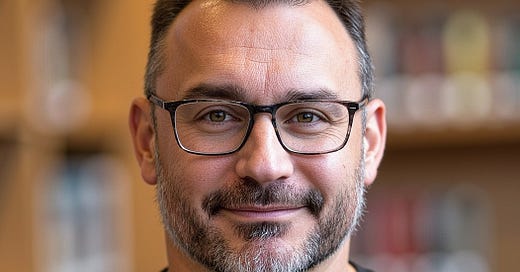Way before the iPhone, in the early days of the Palm Pilot, I got my first taste of the electronic checklist. That started my reliance on technology to keep my tasks organized.
Not too long after the iPhone launched, a ToDo app called Things launched mid-2008. That app introduced me to the GTD (Getting Things Done) concept by David Allen, and I implemented that style of capturing, organizing, and engaging with the projects, tasks, emails, and other client needs that made up my work life.
Fast forward to 2019, I'd been through dozens of task and project management tools, never settling on one that "did it for me." I was looking for the magic tool that tied all areas of my life together so I didn't have to remember everything and nothing would fall through the cracks.
Then came Notion, a tool that some early pioneers were using to build their own productivity systems. This was the first time I was able to create a system of my own without getting lost in code and giving up. Trust me, I'd tried.
I built out an elaborate system for project and task management. It included a CRM which allowed me to keep track of billable hours. I then expanded it to be my Daily Log Journal. I built a personal CRM so I could remember important things about the people closest to me. I started logging my finances in it and could tie things like a coffee shop receipt to my daily log entry, calendar event, and the person whom I had coffee with. I thought I was pretty advanced and even made my Notion Templates available for free.
After coming through COVID, I realized just how much work it was to keep this thing going. The databases were getting slow. I had years worth of data in them that I had not revisited but maybe a few times. My pursuit of building the ultimate life database had become overwhelming, and I didn't want to use it anymore.
I stopped using it altogether and went back to the app I was using before, Todoist. Todoist allowed me to manage tasks and projects, which is all I wanted. I started using the Apple Notes App. Not long after, I left Todoist for Apple's Reminders App.
What I realized is that my productivity issues had nothing to do with the app but everything to do with how I was approaching my days, weeks, and even months.
First off, I was 100% in reaction mode. I was reacting to client needs, reacting to the fact that I hadn't uploaded a video to YouTube in a month, reacting to the abandoned email newsletter I'd promised I'd stick to this time. I had plenty to do until I didn't, and then I was lost.
Task management apps were not the problem; I was, and I needed to fix that. While I have been aware of this for the past few years now, it's hard to break old habits. I started out this year with a plan and some goals. I am certain I will hit most of the goals, but due to falling off of my plan and back into reaction mode, it has and will be a bit messy until I get back on path.
When I am in reaction mode, I am putting out micro fires but never figuring out why they keep starting. I am grasping at structure but not able to take hold of it because there are too many unknowns that keep entering my day.
I know that I can't completely remove all unknowns, and I am not sure I would want a life lacking challenges, but I know that I need to do a better job at protecting my day by being more preventative.
I have written earlier about how I occasionally get stuck in a rut. I have found that I am more likely to get in a rut when there is too much uncertainty in my life. Throw in a hint of frustration and a little bit of unknown outcome, and I'm knee-deep in it wondering what happened. Can you relate?
Journaling has helped me a lot because at the end of the day I am writing about what took place, and through the process of writing I am letting go of the way things went and thinking about how I can take control of tomorrow. Some of my most productive days now follow a day where I was in a rut. I also find myself in ruts less often than in the past.
All that to say, a new tool isn't always the answer. You have to be willing to look at yourself to find out if you are part of the problem, not to tear yourself down, but to become aware and make personal adjustments so less is in the way of you achieving what you want.
For me, these tools were managing the symptoms of my struggle to be as productive as I knew I could be. The tool is only as good as its input, and once I recognized that, I was able to look at myself and identify the things I needed to change so that my productivity could improve.
The one thing we can't buy more of is time. We can only buy back our time and become more efficient. I want to be as efficient as I can be so that I can spend more time with those who are most important to me.
What productivity tool are you hoping will solve a problem that might actually require you to change instead?



